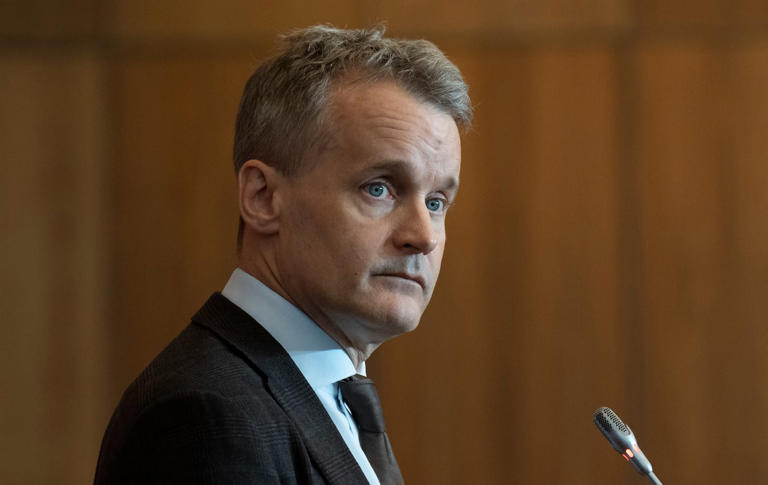Story by Nicole Williams • CBC
Canada's labour minister says he won't interfere in negotiations to end the strike at St. Lawrence Seaway Management Corp., but those who rely on the shipping channel argue there's no time to wait for a deal with millions of dollars in grain at stake.
About 360 employees with the government-established company have been on the picket line since Sunday after negotiations broke down with union representatives at Unifor.
Company and union officials are expected back at the bargaining table on Friday when they sit down with federal mediators in Toronto.
For now roughly 100 ships, including cargo vessels, have been halted along the artery of the St. Lawrence River between Montreal and Lake Erie.
The union is demanding higher wages for workers and for the company to address "a toxic workplace," said National President Lana Payne from the picket line Tuesday.
"We want a reasonable agreement for our members," Payne said. "But it takes two to tango and the reality is ... this employer has not been willing to make a serious offer."
In a statement released earlier this week, company officials said they were "pleased" to resume talks with Unifor and they have been "extremely concerned" with the impacts caused by the current strike.
They said work is ongoing to reach a "mutually beneficial agreement."

Lana Payne, national president of Unifor, talks to St. Lawrence seaway workers from a picket line in St. Catharines, Ont., Tuesday. (Paul Smith/CBC)© Provided by cbc.ca
Port running out of grain storage
Even if a deal is reached by Friday the strike has already hurt local producers, said Robert Dalley, who manages the port in Johnstown, Ont.
Truckloads of soybeans harvested by local farmers continue to be delivered to the port — approximately 5,500 tonnes every day — and stored inside grain elevators.
Ships are typically scheduled to come once a week to load and deliver the supply to buyers, which in turn creates more room for storage at the port.
"When those vessels stop, eventually the system will back up," said Dalley.

A lineup of trucks at the Port of Johnstown is seen delivering soybeans harvested from local farmers. Dalley says there will be no more room for the 5,000 tonnes of soybeans each truck brings if there is no ship to take them in the next few days. (Nicole Williams/CBC)© Provided by cbc.ca
About 125,000 tonnes of soybeans are yet to be harvested this season but will have nowhere to go, and potentially cost farmers $62 million in lost revenue, he added.
This is the consequence of the strike and the corn harvest could also be affected next, which is why Dalley urged both the union and Seaway to come to an agreement quickly.
Related video: 'This stops global trade': The impact of the St. Lawrence Seaway Strike on Western New York (WKBW Buffalo, NY) Duration 2:56 View on Watch
"As a worldwide exporter of grain, of soybean, we need to be reliable. We need to be able to move our grain into the port and move it out to Quebec and over to the European markets," he said.
"When you don't do that and people are waiting for it, they will find it somewhere else."
No back-to-work legislation planned
Those concerns are echoed by federal officials who are keeping a close eye on the situation, but said they have no plans to intervene in negotiations. They continue to urge both parties to return to the bargaining table.
"We just keep talking to our American counterparts. They're obviously very concerned and have a lot at stake, as do a lot of members of this caucus around the Great Lakes communities," Labour Minister Seamus O'Regan said Wednesday.

Labour Minister Seamus O’Regan says he won't interfere in negotiations beyond providing federal mediation between the company and Unifor.
The Canadian Chamber of Commerce (CCOC) has called on the government to "immediately intervene to prevent further damage to supply chains and limit the impact on Canadians," saying the situation can't wait until Friday.
"Canada is at a critical point right now," said Pascal Chan, senior director of transportation, infrastructure and construction at the CCOC.
"Our supply chains are fragile and they have been impacted over the last few years by events such as wildfires, floods, the COVID-19 pandemic, as well as most recently the port strike in British Columbia."
Other groups such as the Canadian Federation of Independent Businesses have asked the government to keep the seaway fully operational to minimize damage to small and large markets as negotiations continue.







